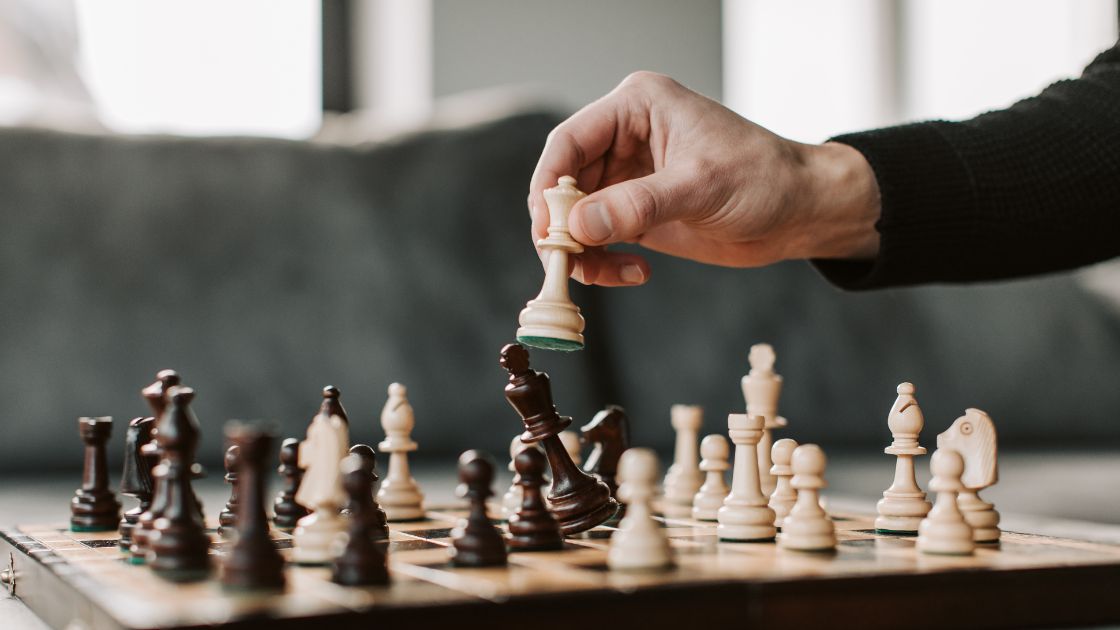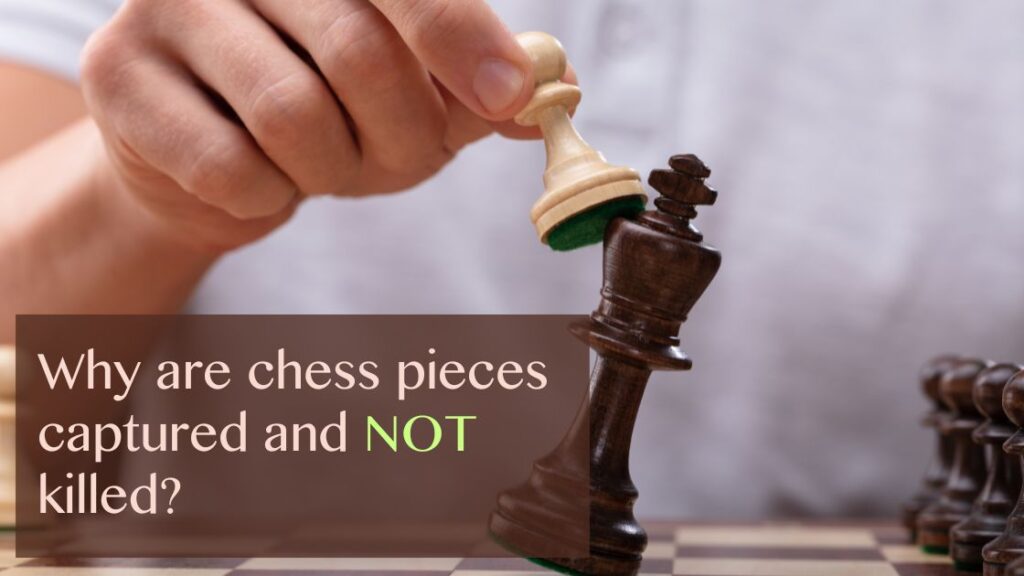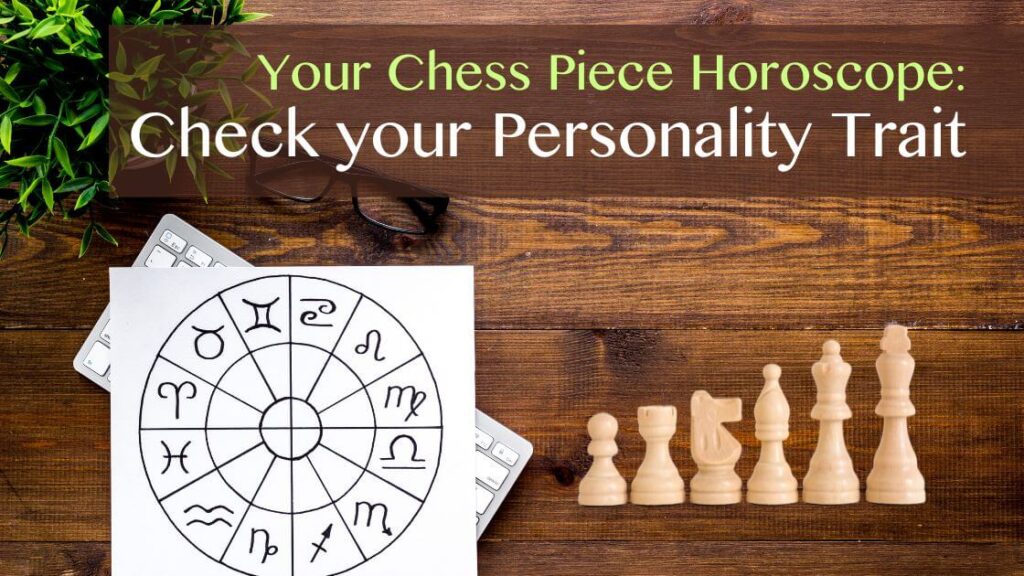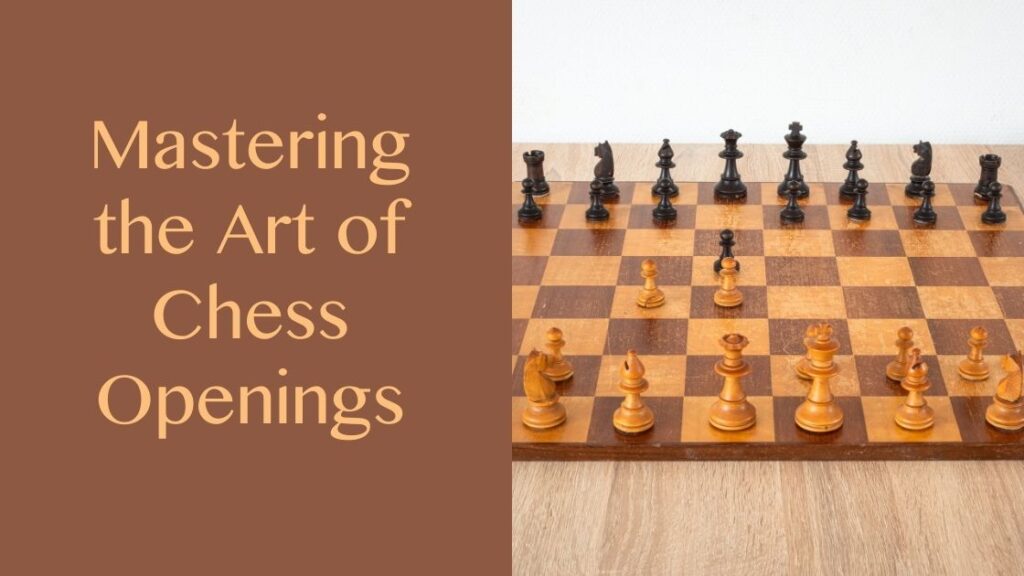Does your heart race like a derby horse or have clammy palms as soon as you stare down a chessboard? If your answer is a “yes”, then you are not alone! The adrenaline of strategic thinking can quickly turn into a stressful ordeal for many chess enthusiasts. Studies have shown that competitive chess can elevate cortisol levels, the stress hormone. But fear not fellow chess enthusiasts! This blog post will help you checkmate those stress-inducing moments and unlock the true pleasure of chess.
What is Chess-Related Stress?
In chess, the intricacies of strategy, the pressure of decision-making, and the constant evaluation of possibilities can create significant mental fatigue. This cognitive strain with the competitive nature of the game can lead to stress.
A lot of factors contribute to chess-related anxiety. Time pressure is a common culprit. The ticking clock can induce a sense of urgency, forcing swift decisions and increasing tension. The fear of losing is another stressor. For many players, facing defeat can be difficult, leading to self-doubt and frustration.
As a chess player, one needs to understand these stress triggers and then effectively work towards managing them.
Mastering your Game Mindset
Picture Courtesy: Chess.com
Cultivating a Growth Mindset Your attitude towards the game can significantly impact your stress levels. Instead of looking at chess as a game of victory and losses, see it as an opportunity to grow and learn. Every game is an opportunity, regardless of the outcome. Focusing on progress over perfection can reduce the pressure to win and increase your enjoyment of the game.
Positive Outlook This is another powerful tool that helps you imagine yourself playing calmly and confidently, making accurate moves, and feeling relaxed. This mental rehearsal can help build confidence and reduce anxiety while playing the game.
Embracing Imperfections We all know that chess is a complex game and mistakes are undoubtedly part of it. Instead of beating yourself up over a blunder, learn from it and move on. Accept mistakes as part of the learning process. You will notice that you will be frustrated less and will maintain a positive outlook.Developing a Pre-Game Routine
Picture Courtesy: Rediff.com/Gukesh
A well-structured pre-game routine can significantly enhance your focus and reduce anxiety. By establishing a consistent set of actions before each game, you create a mental and physical framework for peak performance.
The importance of preparation cannot be overstated. A pre-game routine helps to calm nerves, build confidence, and optimize your cognitive abilities. By following a consistent process, you establish a sense of control, which is essential for managing stress.
A combination of physical and mental warm-up is beneficial. Light exercises like stretching or deep breathing can help relax your body and clear your mind. Mental exercises such as meditation and positive affirmations can boost your confidence and focus.
Finally, creating a focused environment is crucial. Choose a quiet space free from distractions. Ensure you have all the necessary equipment, and adjust the ambiance according to your preference. A comfortable and favorable environment can significantly impact your overall performance.
Work on your Decision-Making Skills
Decision-making is one of the mainstay skills in the game of chess, let us check out some strategies to improve this skill:
Simplify Your Analysis Chess can be overwhelming as you go, but it also comes with countless possibilities. To avoid analysis paralysis, focus on the key factors influencing your position in the game. Play with priorities on threats, weaknesses, and immediate encounters. By simplifying your game analysis you will be able to make quicker and smarter decisions.
Trust Your Intuition Chess intuition is a very powerful asset to have. While careful analysis is also important, do not underestimate the value of THAT gut feeling. Often, your subconscious mind has processed information at a deeper level than conscious thought. Trust that thought, but also back it up with some logical reasoning.
Post-Game Analysis Once you have worked on your decision-making skills it’s time to amp up on the retrospection. Look back on your game to identify mistakes and successful strategies. Understand why certain moves worked in your favor or failed, this will help you make better choices in your future games. Using online analysis tools or databases to gain deeper insights can also help.
Join the CHESS KLUB Community
Reducing chess-related stress is a gradual journey and not a destination. Mastering your mindset, managing time pressure, and developing pre-game techniques can help you sort your mind towards a stress-free chess experience.
We at CHESS KLUB are a wholesome community offering support, encouragement, and building chess maestros.
Let us know in the comments below how you have managed the chess stress!












